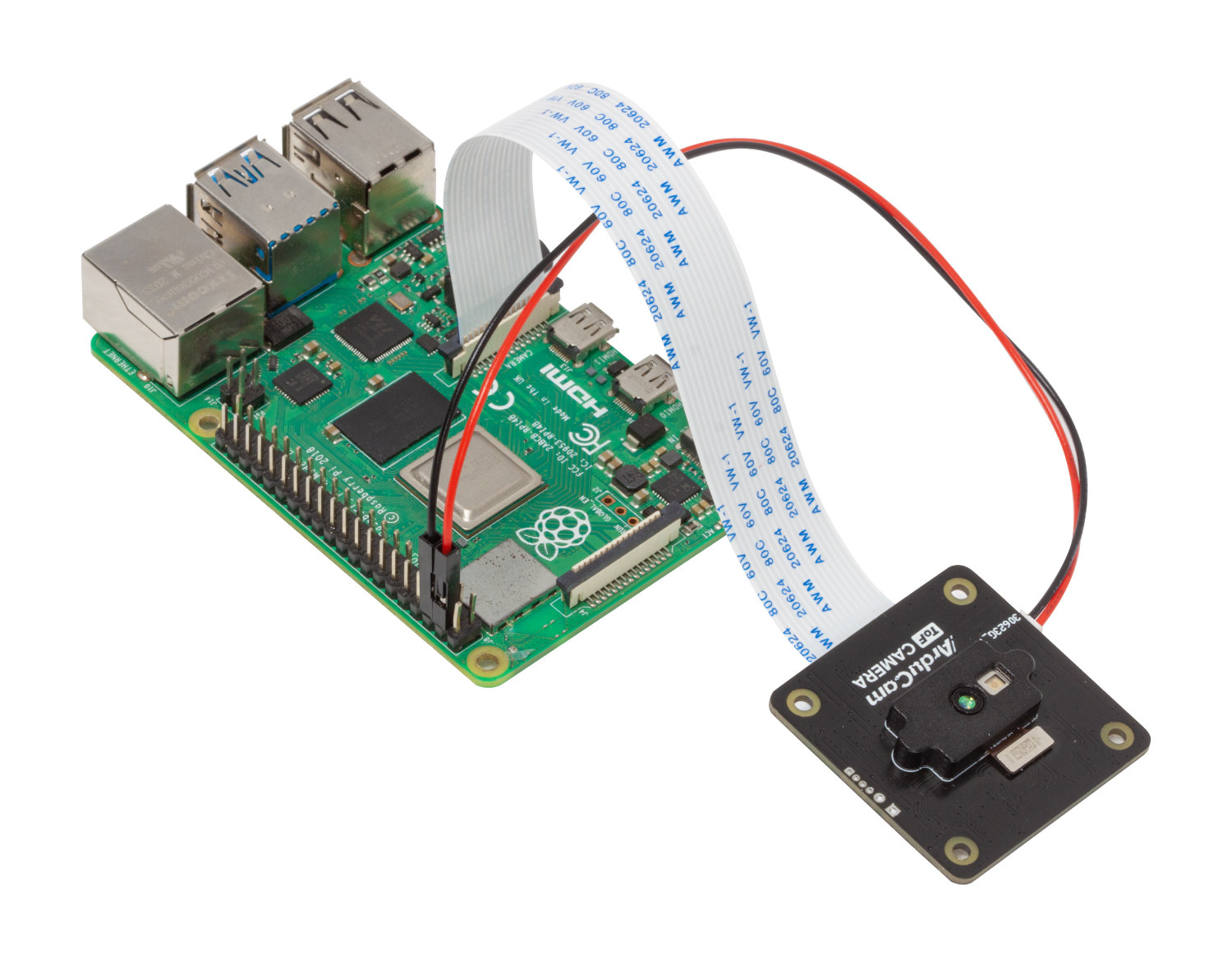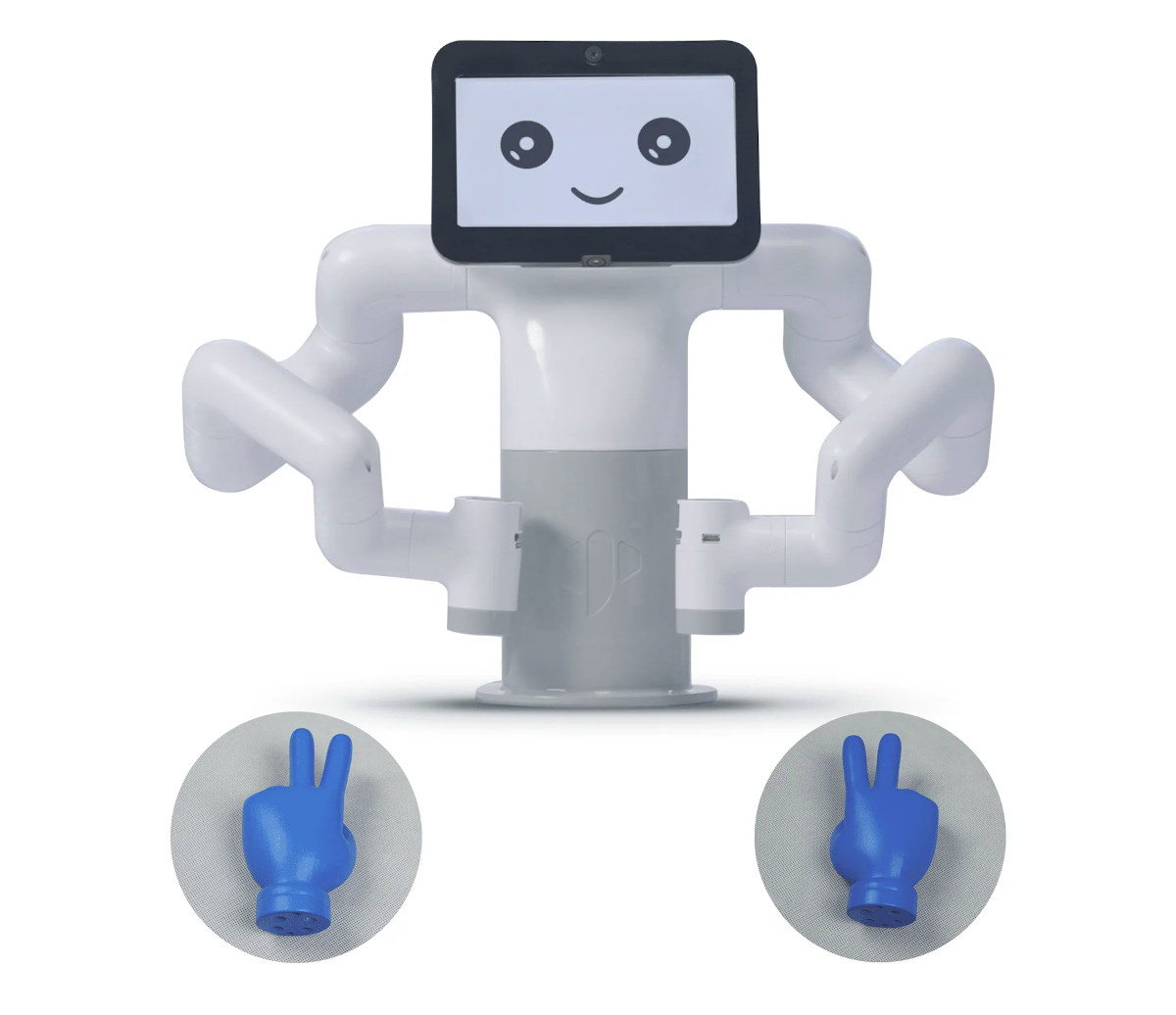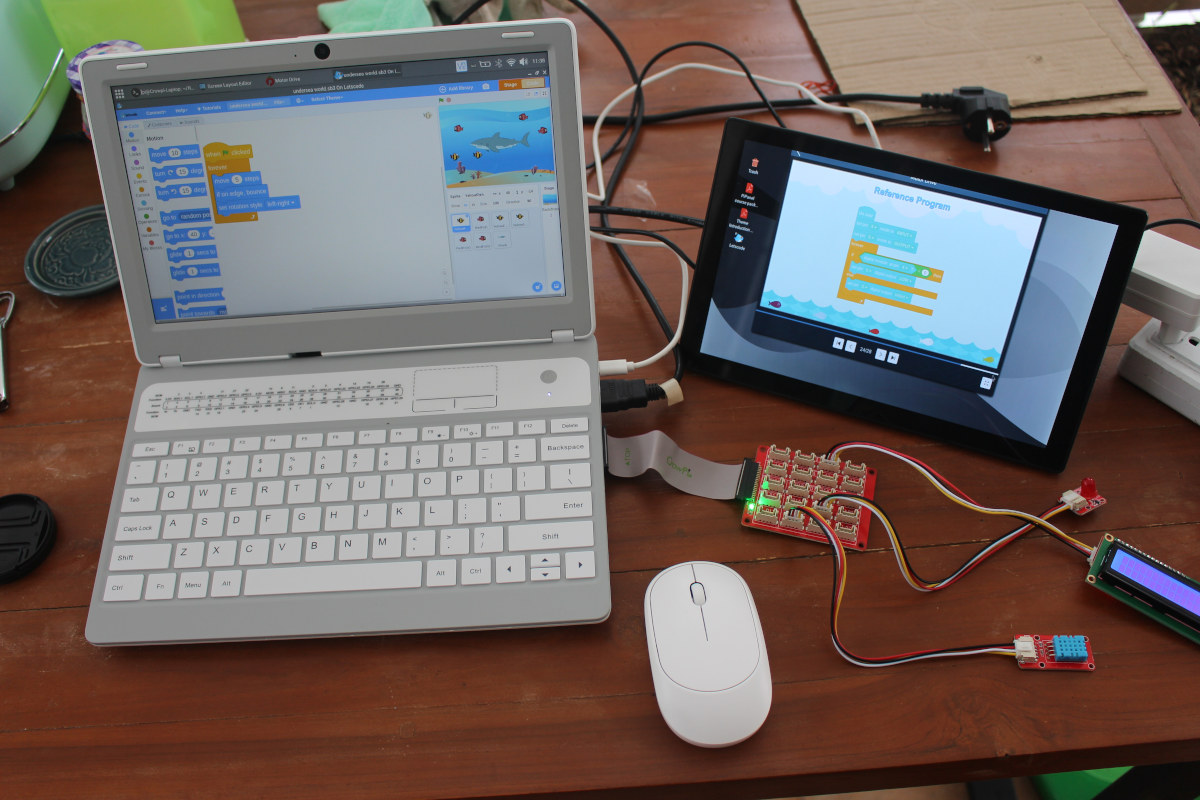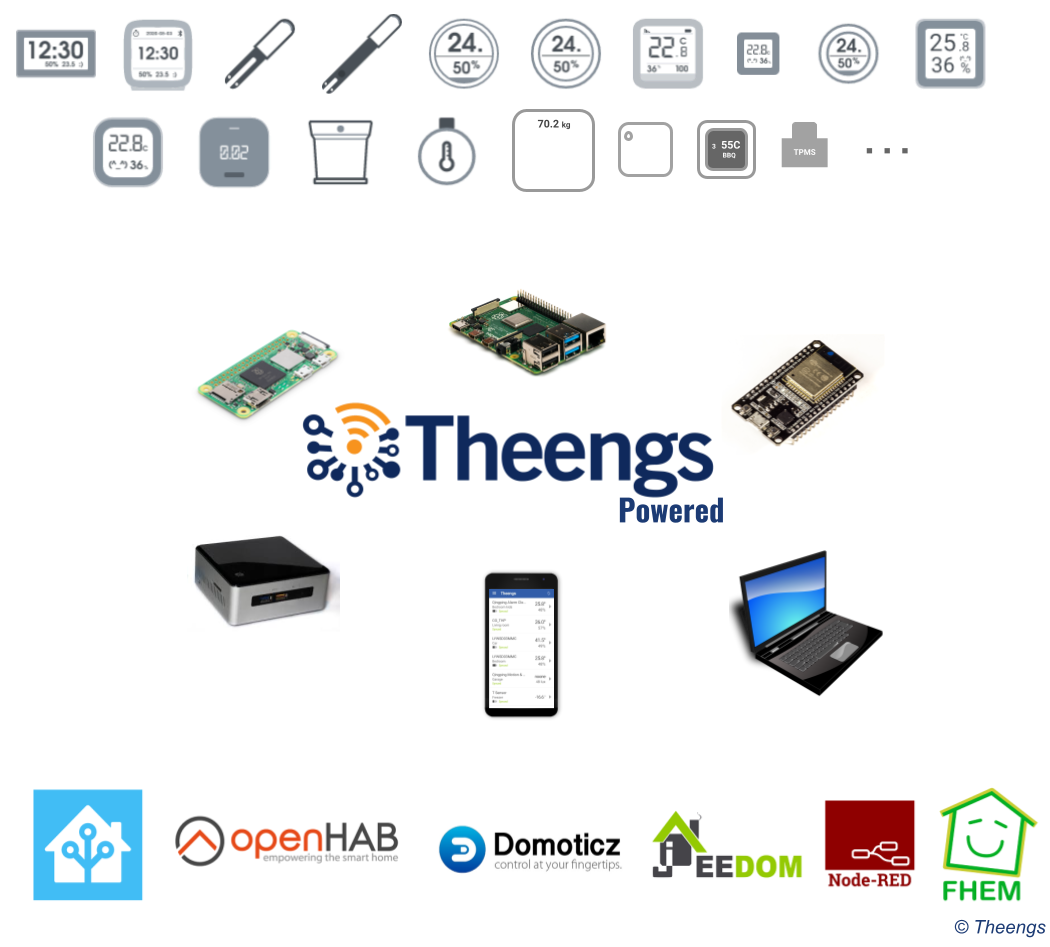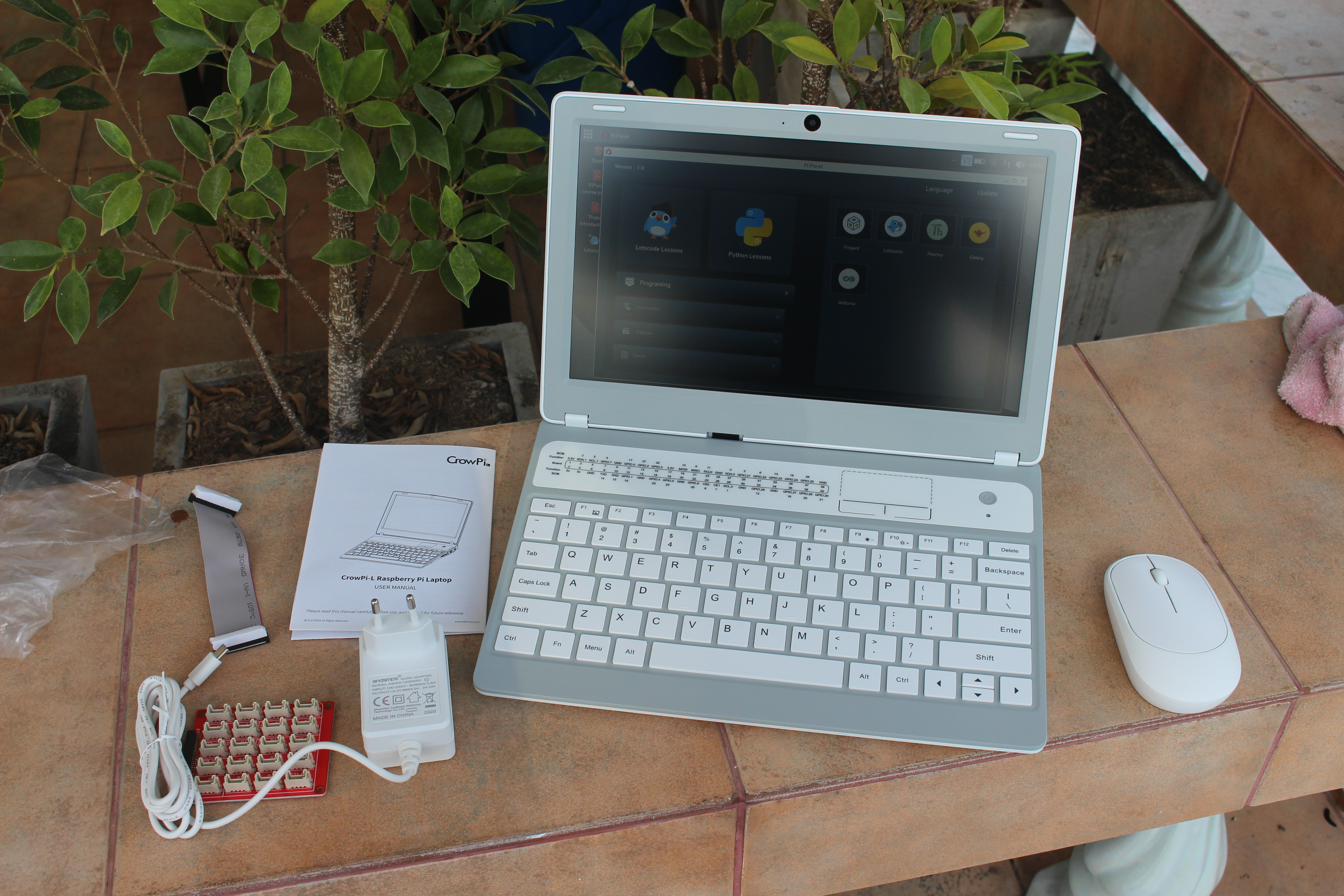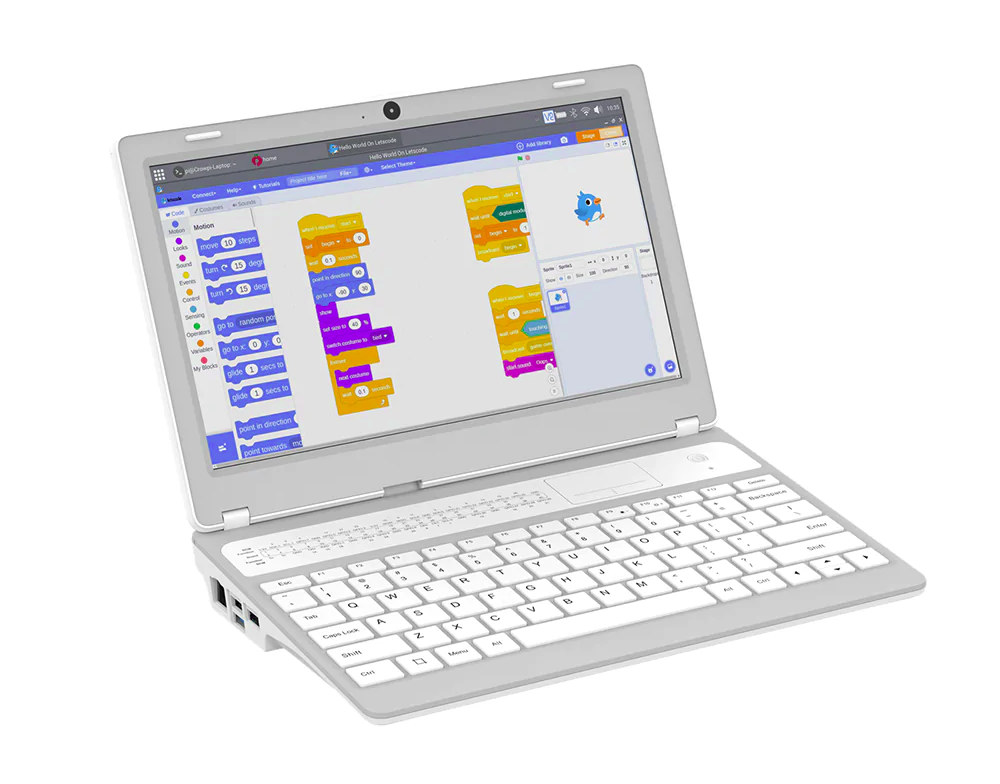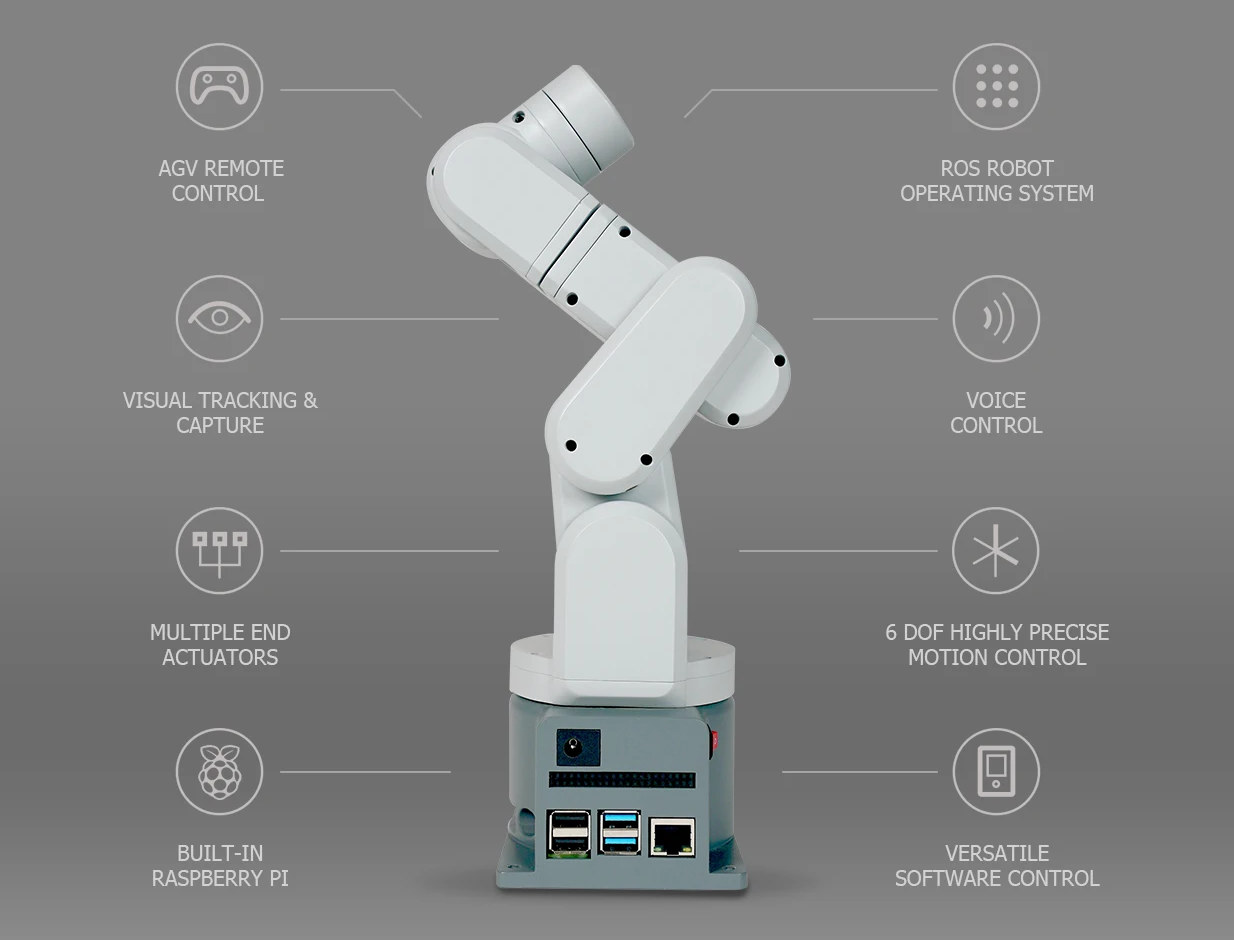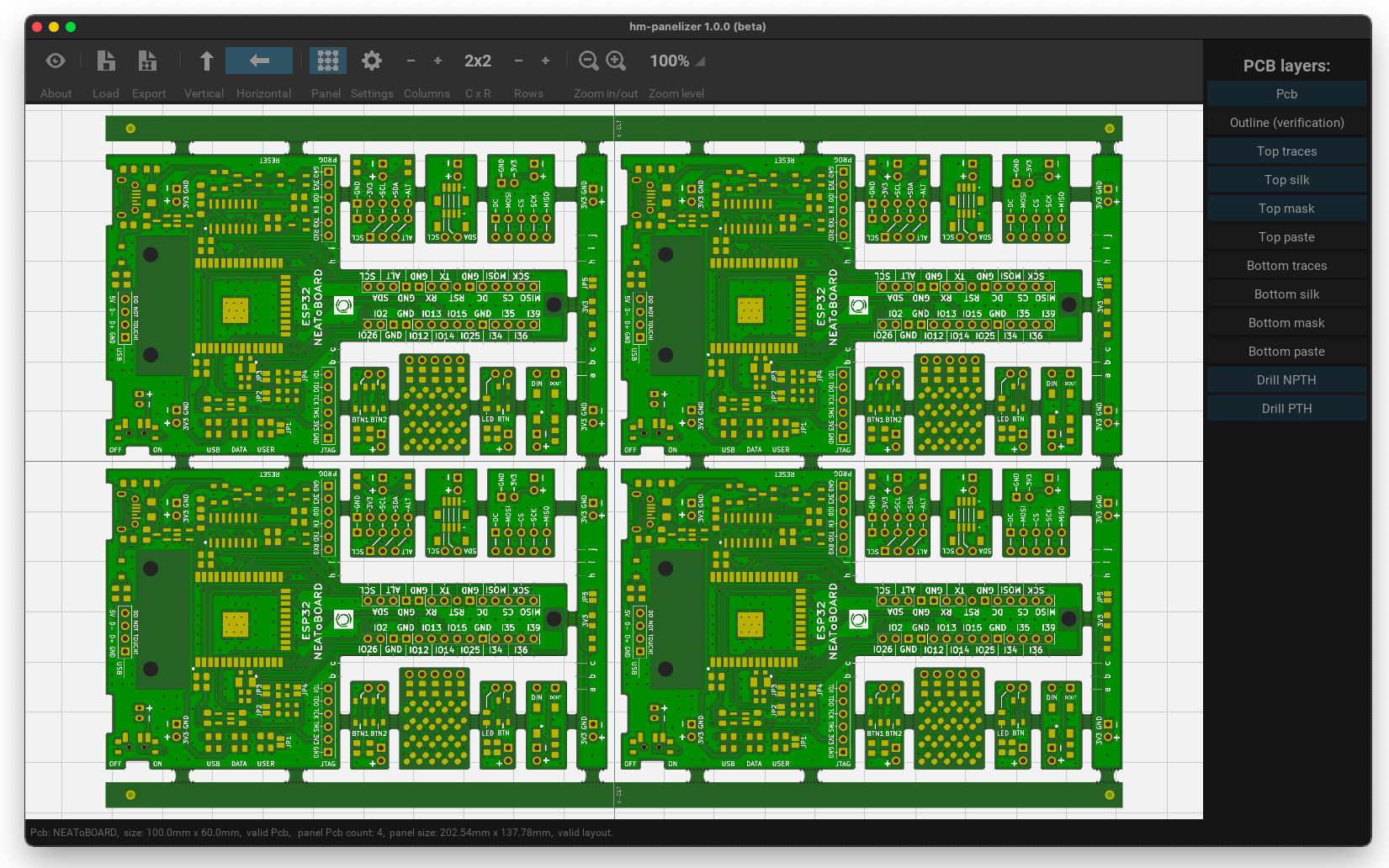Arducam has launched of Time-of-Flight (ToF) camera module for Raspberry Pi that enables depth sensing by capturing 3D data (at 240×180 resolution) at a distance of up to 4 meters. Arducam has launched several cameras for Raspberry Pi boards over the years, more recently the Arducam Pi HawkEye 64MP camera, but the Arducam ToF camera is quite different, as while it still connects to the MIPI CSI connector of the SBC, it is used to measure distances and depth and display 3D data. Arducam ToF camera specifications: Compatibility – Any Raspberry Pi board with a MIPI CSI connector Effective number of pixels – 240×180 Frame Rate Up to 120 fps (sensor) Up to 30 fps (when processed by a Raspberry Pi using 4-phases RAW frames) Sensor size – 1/6-inch Modulation Frequency – 75MHz/37.5MHz Viewing Angle – 70° Diagonal Light Source – 940nm VCSEL illuminator Output Formats 4-phases RAW Frame Depth […]
myBuddy 280 dual arm robot features Raspberry Pi 4 SBC and ESP32 controllers
Elephants Robotics myBuddy 280, aka myBuddy 280 Pi, is a dual-arm collaborative robot for education with a 7-inch display powered by Raspberry Pi 4 SBC, and also features three ESP32-based M5Stack core modules that help with the internal communication between the motors and the Raspberry Pi board. It builds upon the earlier myCobot 280 Pi robot with a single arm, with the same 280mm working range, but the new robot offers two arms, and a total of 13 degrees of freedom (DoF). The robot is also equipped with two 2MP HD cameras for computer vision, a standard 3.3V expansion I/O interface, a LEGO expansion interface, and can be fitted with a variety of adapters such as suction pumps, grippers, little hands (see below), etc… myBuddy 280 specifications: SBC – Raspberry Pi 4 (2GB or 4GB RAM) single board computer to control the display and communicate with the ESP32 modules IoT […]
CrowPi L Review – Part 2: Learn programming and electronics with a Raspberry Pi 4 laptop
In the first part of our review of CrowPi L Raspberry Pi 4 laptop for education, we checked the hardware and accessories such as the CrowTail starter kit with various sensors and other electronics modules, and showed how to install or remove the Raspberry Pi 4 SBC from the laptop shell. I’ve now had more time to play with the educational software, so I’ll report my experience with the laptop when learning game design and hardware control with Letscode visual programming IDE, as well as the Python lessons for more advanced students. Reinstalling CrowPi OS image It’s the rainy season here in Thailand meaning it’s both hot and humid, and even though I’m not entirely sure it’s related, I recently had to reinstall Raspberry Pi OS on one of my Raspberry Pi with a corrupted SD card. It happened again with the CrowPi L after I left it in its […]
Theengs open-source tools to decode BLE sensors work on ESP32, Raspberry Pi, Android phone, etc…
Theengs is a manufacturer agnostic open-source set of tools to decode BLE sensors and integrate those into smart home and IoT solutions such as Home Assistant with notably support for autodiscovery to automatically create the sensor. Theengs can be installed on various hardware from ESP32 to an Android phone or a Raspberry Pi SBC, and the solution currently supports close to forty BLE sensors from various companies including Xiaomi, Honeywell, and RuuviTag. There are six components: The Theengs Decoder library developed in C++ for portability and translating data from sensors into human-readable data using the JSON format. The Python-based Theengs Gateway acting as a BLE to MQTT bridge for Home Assistant, OpenHAB, and NodeRED integration. It relies on the Theengs Decoder library and publishes the sensors broadcasted BLE information to an MQTT broker. The OpenMQTTGateway is also BLE to MQTT bridge, but instead of targetting Linux-capable hardware like Raspberry […]
CrowPi L Raspberry Pi 4 laptop review – Part 1: Unboxing and teardown
Elecrow CrowPi L is an 11.6-inch laptop shell based on Raspberry Pi 4 designed for STEM education with optional electronics modules and tutorials. That’s an evolution of the CrowPi 2 laptop I reviewed in 2020 with a thinner design and more flexible since the electronics modules are optional, so it can serve the market of people just wanting a Raspberry Pi 4 laptop. The company has sent me a full “CrowPi L Advanced Kit” for review with the CrowPi L laptop fitted with a Raspberry Pi 4, as well as the Crowtail Starter Kit for Raspberry Pi. CrowPi L Advanced Kit Unboxing Let’s check out the laptop package first. Since in this design, the laptop comes with a battery, and mine already had a Raspberry Pi 4 installed, I could just turn it on immediately. Accessories include a wireless mouse, a 12V/2A power supply (with USB Type-C plug… this should […]
CrowPi L is a $200 laptop shell for Raspberry Pi 4
Two years ago, we reviewed CrowPi 2 Raspberry Pi 4 laptop designed for STEM education with embedded electronics modules and Letscode software with step-by-step tutorials to learn Scratch and Python programming. I found it quite good, but many people were mostly interested in having a Raspberry Pi 4 laptop, and the price tag was a bit high at the time. That’s probably why Elecrow has now designed for CrowPi L laptop shell for Raspberry Pi 4 based on the CrowPi 2 but without all the electronics modules, and with a built-in battery to operate more like an actual laptop. CrowPi L laptop shell specifications: Compatible SBC’s – Raspberry Pi 4 Model B only Storage – Full-size SD card slot Display – 11.6-inch 1366×768 IPS screen (CrowPi 2 was 1920×1080) Video Output – HDMI output for external monitor Camera – 2MP camera Audio – Built-in microphone and stereo speaker; 3.5mm audio […]
MechArm Pi 270 is a desktop robotic arm powered by a Raspberry Pi 4 SBC
Elephant Robotics MechArm Pi 270 is a six-axis robotic arm with a 270mm working radius, support for up to 250 grams payload, and that runs Debian/Ubuntu + ROS on a Raspberry Pi 4 single board computer. The robotic arm was introduced last year in two separate crowdfunding campaigns on Kickstarter and Indiegogo organized by MechArm, which has now joined Elephant Robotics, and now supports myStudio software to upgrade the software, provide video tutorials on how to use the robot, as well as maintenance and repair information. MechArm Pi 270 key features and specifications: Controller – Raspberry Pi 4 Model B SBC with quad-core Cortex-A72 processor, dual-band WiFi 5 & Bluetooth 5.0 connectivity Display I/F – 2x Micro HDMI output port up to 4Kp60 Supported cameras – Official Raspberry Pi cameras or third-party USB cameras USB – 2x USB 3.0 ports, 2x USB 2.0 ports Robotic arm 270mm working range 6 […]
hm-panelizer – A KiCad companion GUI tool for panelizing PCBs
Gerard (aka halfmarble) has released hm-panelizer open-source software allowing for a panelization of PCBs via a simple GUI interface and doubling as a Gerber file viewer. He’s mostly tested it with PCBs designed in KiCad 6.x, but it should also work with design files from other tools. Note that hm-panelizer is just a side project, and Gerard released it as an open-source project in hopes that it might be useful to users and the community will contribute to it. The project relies on kivy cross-platform library, pygame and pycairo libraries, as well as pcb-tools and pcb-tools-extension projects. There are some requirements for the utility to work on with your PCB : Use the metric system The PCB Gerber files must use Altium/Protel filename extensions The board outline gerber file (.gm1) must be present “Disable aperture macros” when exporting Gerber files (this may not be needed for simple designs and only […]


